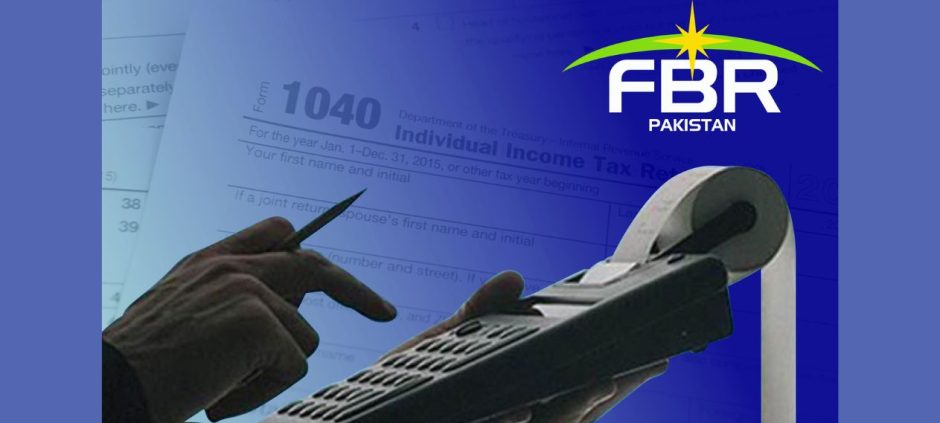If there’s one thing that can make even the most successful freelancer break into a cold sweat, it’s the idea of receiving an FBR notice.
And honestly? It’s not always because they’re doing something wrong.
It’s because the system feels confusing, unpredictable, and, let’s admit, a bit scary.
Pakistani freelancers already juggle clients, deadlines, and platforms like Upwork and Fiverr. Dealing with taxes often feels like a puzzle with missing pieces.
In this blog, let’s break down why freelancers fear this process, the common mistakes that trigger problems, and the confusing taxes FBR collects that affect everyday citizens far beyond the freelancing world.
Why Freelancers Fear FBR
Before we dive into mistakes, let’s understand why the fear exists.
Sometimes the fear has less to do with tax rules… And more to do with the lack of clarity around them.
Here’s what makes freelancers uncomfortable:
Confusing Tax Terminology
Freelancers hear terms like “withholding tax,” “income tax return,” or “non-filer penalties” and instantly feel lost.
If the basics aren’t clear, the notices naturally feel intimidating.
Before we go further, let’s break down the points clearly:
- Many freelancers think they’ll be “punished” even if they’re earning small amounts.
- Others assume tax returns are only for salaried people.
- Some believe foreign income is automatically tax-free.
- Most don’t know the difference between being an “active filer” and actually paying tax.
A lot of misunderstandings happen simply because information isn’t accessible in plain language.
Common Mistakes That Trigger FBR Notices
You’d be surprised how small mistakes lead to large consequences.
Sometimes, the tiniest oversight creates unnecessary stress, but the good news is, it’s fixable.
Here are the major mistakes freelancers often make:
1. Not Filing an Income Tax Return
Even if your income is below the taxable limit, you’re still required to file a return.
Not filing automatically puts you on FBR’s radar.
Here’s what you need to keep an eye on:
- Filing late or skipping a year
- Assuming a low income means you don’t need to file
- Not declaring foreign remittances properly
2. Not Verifying Your FBR Status
Being a filer affects everything, bank deductions, SIM taxes, and even car and property penalties.
A simple check on the Active Taxpayers List could save you unnecessary withholding charges.
3. Confusing “Foreign Remittance” With “Foreign Income”
Platforms like Payoneer and Wise transfer money into your account as foreign remittance.
However, freelancers often assume that everything remitted is tax-exempt.
Income must still be declared, even if certain parts are exempt.
4. Not Keeping Records of Payments
Freelancers often don’t keep invoices or income logs.
So if FBR audits them, they panic because they can’t prove the numbers.
5. Ignoring FBR Emails and SMS Alerts
The longer you ignore a notice, the more stressful it becomes.
Most notices are simply requests for clarification, not penalties.
The Most Confusing Taxes FBR Collects
Now let’s talk about everyday citizens, freelancers, shopkeepers, students, and families. Sometimes, people pay taxes without even realizing it.
These are the taxes that confuse most Pakistanis:
1. Withholding Tax (WHT)
This is taken automatically when you use banking services, buy a car, pay your phone bill, or withdraw cash.
One confusing part?
Non-filers pay double in many cases.
2. Sales Tax
You pay this everywhere: groceries, restaurants, salons, accessories.
The complexity?
Every province applies different rates, and most people never know where the tax actually goes.
3. Income Tax
This is where freelancers often get confused.
You may not pay tax if your income is below the threshold.
But you must still file.
4. Property and Motor Vehicle Taxes
Even if you’re not a property owner, these taxes influence market rates of rentals, buying, and investments.
5. Corporate and Sector-Specific Taxes
To understand how deeply FBR’s system goes, recent actions show how entire industries are monitored.
For example, FBR recently uncovered a massive Rs 30 billion tax evasion case in the tile sector and expanded monitoring, a reminder of how seriously the department is tightening oversight.
This shows how routine businesses and individuals can fall under stricter monitoring if records aren’t in order.
How Pakistani Freelancers Can Avoid FBR Problems
Let’s simplify this once and for all. These actions can help you stay safe, compliant, and stress-free:
- File your tax return on time, even if you earn below the taxable limit.
- Keep simple monthly income logs.
- Save invoices or screenshots of payments.
- Update your FBR profile with the correct phone number and email.
- Respond to any notice within 7–15 days.
- Stay active on the tax filer list.
- Don’t rely on hearsay; confirm information from the official portal or a consultant.
Following these steps doesn’t just reduce stress; it builds confidence.
Your Clear Path Forward
Taxes don’t have to feel scary.
And despite the fear around FBR, most freelancers only need clarity, not panic.
When you understand the system, your rights, responsibilities, and the common mistakes, you take control of your freelance journey, not the other way around.
If you’re earning online, filing properly, and keeping clean records, there’s nothing to fear.
Just stay informed, responsible, and confident.
FAQs
Q1: Do all freelancers need to pay taxes in Pakistan?
Yes, freelancers earning above the minimum taxable limit are required to report income and pay taxes, regardless of whether the money comes from local or foreign clients.
Q2: Can ignoring an FBR notice lead to legal issues?
Yes, ignoring notices can result in fines, penalties, or even legal action. Always respond promptly.
Q3: How can freelancers make tax filing simpler?
Using FBR’s online portal, keeping clear records, and consulting a tax professional can simplify the process significantly.
Q4: Is foreign currency income taxable in Pakistan?
Yes, all earnings received from abroad are considered taxable, but there are exemptions depending on the amount and nature of work.











